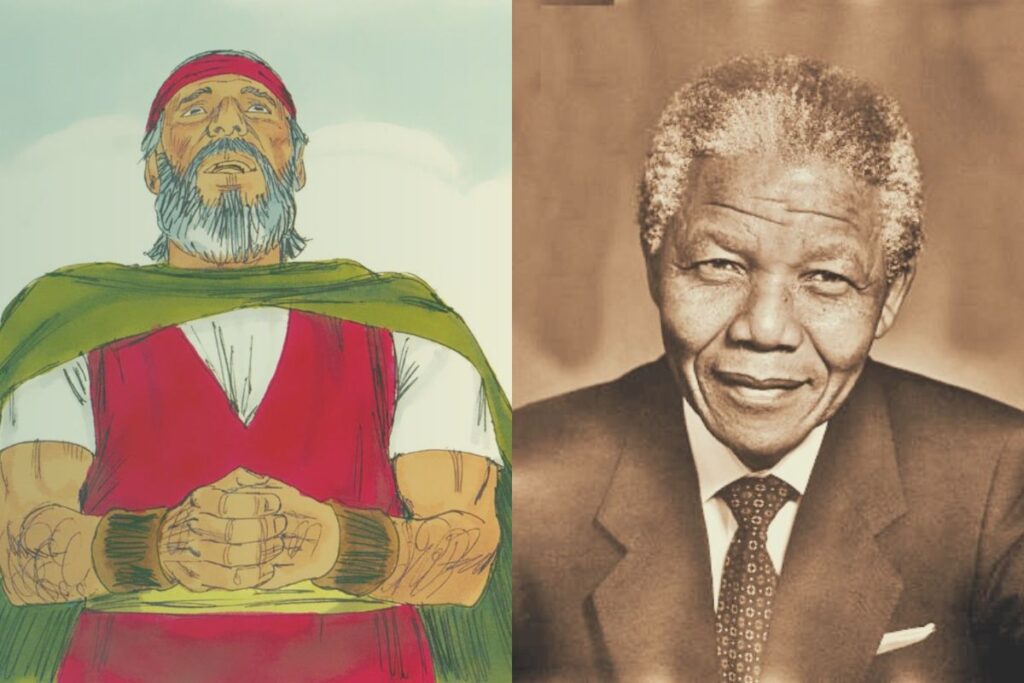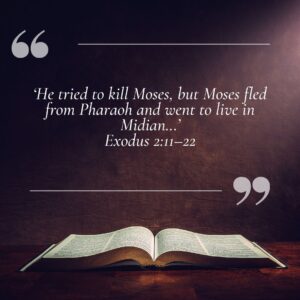
Exodus 2:11–22 ‘He tried to kill Moses, but Moses fled from Pharaoh and went to live in Midian…’ (v15)
Nelson Mandela was always committed to non-violent protest against apartheid – until the Sharpeville Massacre of 1960 where sixty-nine black protestors were killed by South African police.
There seemed no way for change other than violent retaliation, so Mandela became the leader of Umkhonto we Sizwe, the military wing of the African National Congress.*
Because of this, Mandela was imprisoned for almost thirty years. After his exile, he emerged from prison in a more powerful position and, remarkably, renewed his dedication to non-violence.
His legacy as an exemplary leader and peacemaker continues to this day. Moses and Mandela have similarities.
Though he grew up in Pharaoh’s palace and was seen as Egyptian by the Midianites, Moses knew his true identity and was distressed by the oppression of his people.
When he saw an Egyptian beating a Hebrew, he snapped. He used violent action as a freedom fighter, or committed murder, depending on your perspective (v12).
His fellow Hebrews were unimpressed (v14). Filled with failure and fear, he ran away to Midian and settled there (vv15–22).
We know this isn’t the end of the story for Moses, but at this stage, he didn’t. Sometimes what we think of as permanent failure is a temporary exile in order for us to grow.
Think of all the ways you feel defeated in your life: your losses, the dead ends, the wrong turns. What difference does it make to see them as essential preparation for God’s next plan?

A Prayer To Make:
‘Dear Lord, when I feel defeated and lost, please show me Your purpose. When I feel like I don’t belong, remind me You value. Amen.’
An Action To Take:
Bring all your feelings of fear and failure to God. Ask your heavenly Father: How is all this preparing me for what is next?
Scripture To Consider:
Gen. 32:1–12 & 33:1–4; 1 Sam. 23:7–14; Luke 3:1–3








